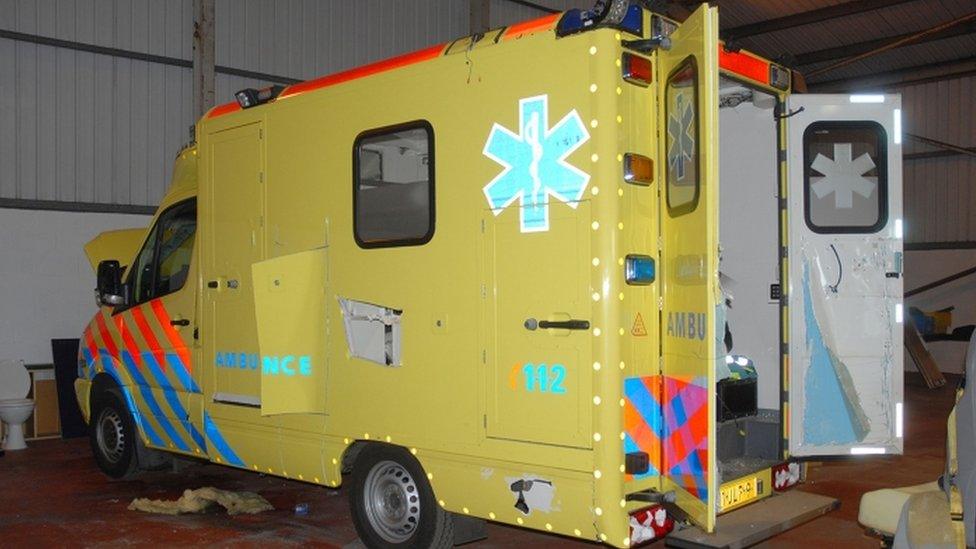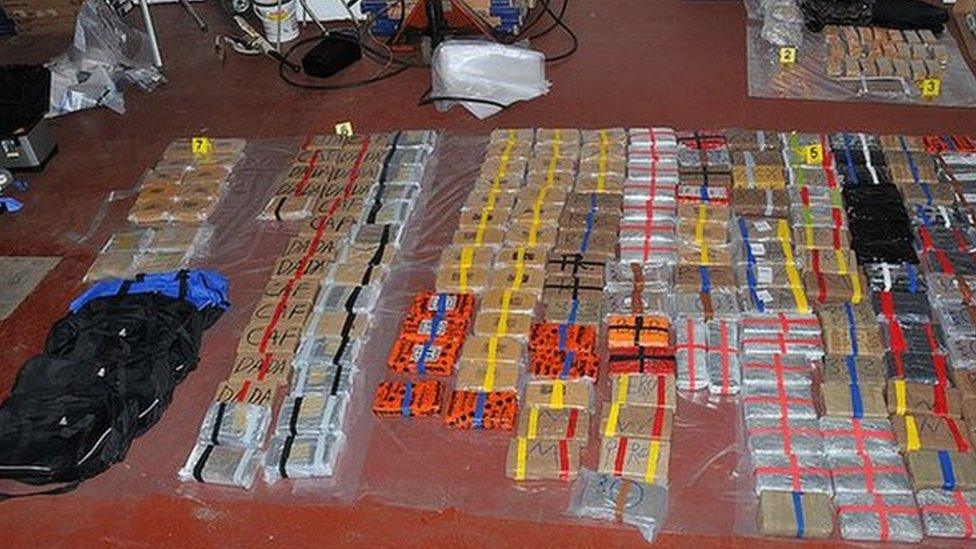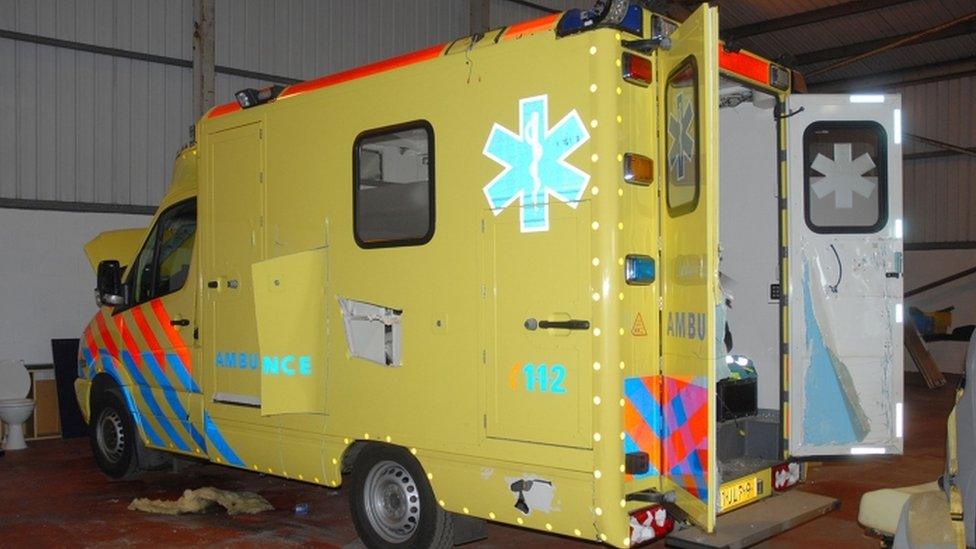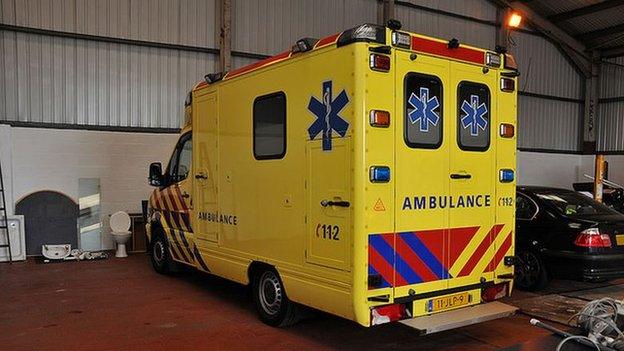Fake ambulance driver had 'no clue' of drugs in back
- Published

The court was told trips in the ambulance had been going on for months
The driver of a fake Dutch ambulance "rammed to the roof" with £38m of cocaine and heroin claimed he had "no clue" what was in the back, a court heard.
Dennis Vogelaar denies being part of a £1.6bn plot to smuggle "top quality" drugs into the UK.
Co-defendant Leonardus Bijlsma said: "I can't read" when asked about a diary of names and addresses found in a car, Birmingham Crown Court heard.
Both deny conspiracy to supply drugs.
Prosecutors allege the "lucrative criminal conspiracy", fronted by a bogus ambulance company in Holland, may have seen up to £420m of drugs reach the UK, with a street value four times higher.
When National Crime Agency (NCA) officers swooped on a meeting near a scrap yard in Smethwick in June, they found an ambulance with six hiding places, according to Robert Davies, prosecuting.
Inside were neatly-stacked packets of drugs including 193kg of cocaine with a street value of more than £30m, and 74kg of heroin worth £8m in individual deals.
Officers also found 19,920 ecstasy tablets and 2kg of MDMA (ecstasy) crystal powder.
Bijlsma and Vogelaar, both of Amsterdam, were arrested along with two other men - Olof Schoon, aged 38, and 51-year-old Richard Engelsbel.
The jury has already been told that Schoon and Engelsbel have admitted conspiracy to supply drugs.
In interview, 55-year-old Bijlsma told officers he had left school aged 14 and had only been in the UK to look at an old BMW to scrap.

Police found packages of cocaine, heroin and amphetamine as well as thousands of suspected ecstasy pills
CCTV was played in court showing how, on one occasion in May, the same ambulance seized by the NCA in Smethwick was driven to the Moorside Industrial Estate in Colchester.
The footage also showed Bijlsma and Schoon arriving separately in a Mercedes car just minutes before, then meeting the ambulance crew at a lock-up.
The Crown has alleged that the industrial unit was just one of several locations where the drugs were unloaded for distribution.
Mr Davies described the firm and its operations as nothing more than "a veneer" for the smuggling operation which sometimes even boasted fake patients.
The trial, set to resume on Tuesday, continues.
- Published17 November 2015

- Published2 October 2015

- Published18 June 2015
